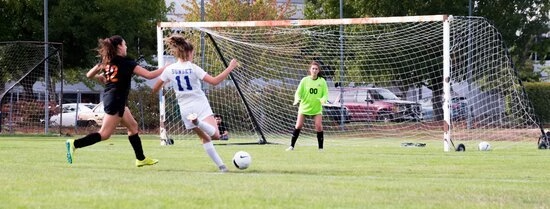The Women's World Cup is in full swing. Observant viewers may have noticed that many teams have American players within their selections. For example, 18 of the 23 players on the Philippines' selection were born in the United States. And this is not the only team. Why is the influence of American women's soccer so great? Gijsbert Oonk, professor of history at ESHCC, explains on CNN.
The U.S. soccer women have been historically dominant. They won four world titles and four Olympic gold medals. Unlike the men's team, which never again played a meaningful role in global soccer after the 1930 semifinals. This big difference in performance means there is an "inverse path of migration and citizenship options," said Gijsbert, director of the History, Sport and Nation research program at Erasmus University Rotterdam, which focuses on the role of citizenship and migration within soccer and the Olympics.
The history of American women’s dominance
The United States has a completely different history when it comes to soccer than, say, Europe and South America. This is partly due to legislation that made it just as easy for women as men to gain access to higher education through a sport. And for women, this was very often soccer, which was seen as "not a real man's sport" in the U.S. anyway. That created a surplus of soccer women. And professional players who didn't make the U.S. selection sought their fortune elsewhere.
Back to your roots
Cultural background also plays a role. Some players with dual citizenship want to go back to their roots. They were born in the U.S., but also feel Mexican or Filipino, for example. Although the percentage of foreign-born players on international soccer teams has been fairly stable for decades, it could grow rapidly in the coming years, according to Oonk's research. "More countries are now active in finding dual nationals abroad who can represent their countries," he says.
Curious about the full article? Check it out on CNN's website.
- Researcher

